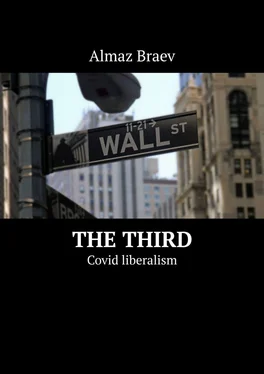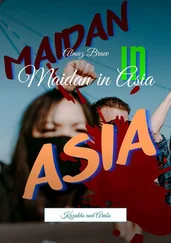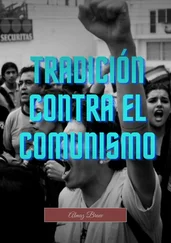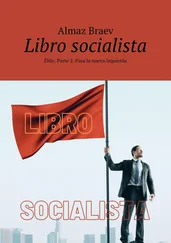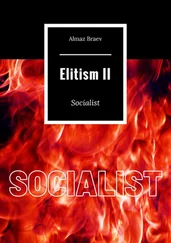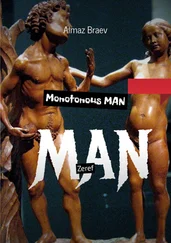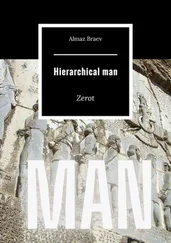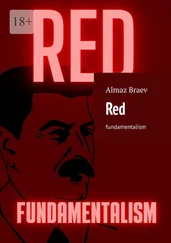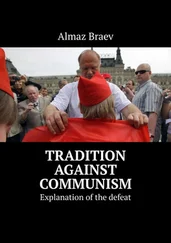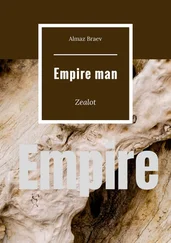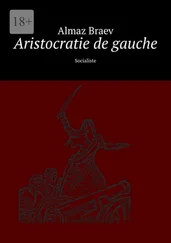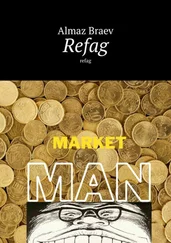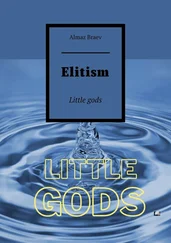Almaz Braev - The Third. Covid liberalism
Здесь есть возможность читать онлайн «Almaz Braev - The Third. Covid liberalism» — ознакомительный отрывок электронной книги совершенно бесплатно, а после прочтения отрывка купить полную версию. В некоторых случаях можно слушать аудио, скачать через торрент в формате fb2 и присутствует краткое содержание. ISBN: , Жанр: Политика, на английском языке. Описание произведения, (предисловие) а так же отзывы посетителей доступны на портале библиотеки ЛибКат.
- Название:The Third. Covid liberalism
- Автор:
- Жанр:
- Год:неизвестен
- ISBN:9785005102256
- Рейтинг книги:3 / 5. Голосов: 1
-
Избранное:Добавить в избранное
- Отзывы:
-
Ваша оценка:
- 60
- 1
- 2
- 3
- 4
- 5
The Third. Covid liberalism: краткое содержание, описание и аннотация
Предлагаем к чтению аннотацию, описание, краткое содержание или предисловие (зависит от того, что написал сам автор книги «The Third. Covid liberalism»). Если вы не нашли необходимую информацию о книге — напишите в комментариях, мы постараемся отыскать её.
The Third. Covid liberalism — читать онлайн ознакомительный отрывок
Ниже представлен текст книги, разбитый по страницам. Система сохранения места последней прочитанной страницы, позволяет с удобством читать онлайн бесплатно книгу «The Third. Covid liberalism», без необходимости каждый раз заново искать на чём Вы остановились. Поставьте закладку, и сможете в любой момент перейти на страницу, на которой закончили чтение.
Интервал:
Закладка:
Thus, for market apologetics and any other lack of ideas, you need to find a generation born without contact with the land (with the village, aul relatives, without relatives at all). All these young people – the children of the first citizens, and perhaps themselves are Zeremids. Only those who did not fall into the ranks of the most loyal people of the ruling autocracy. Like all younger sons, they lose perspective and as if deprived of the inheritance. But this conditional inheritance must also be given by the state. But they see, know, and are also told that they will not see anything and take nothing. Everything has already been captured and cleaned up by the current elite. They are told from the outside: “They will not share with you. This is not your system or your state”
Now, who was included in the group of the chosen, conditional eldest sons of the authoritarian regime?
After all, all officials in the world behave the same. But if a new autocracy has developed and the imposition of the market on the traditional people, the traditional foundation, what will happen?
Among nomads, the eldest sons behave the same way as the eldest sons of Europe and Russia. They are also invisible and not energetic. It looks like these disciplines and quiet guys don’t need anything. The nomads have a minorat. The younger sons remain in the family with their parents. The elder sons leave. Although they also cut the inheritance. There is no other path left for the elder sons in modern conditions than that of the Gascony D’Artagnan. But when they get to megacities, they are again very accommodating and tolerant, unlike the Frenchman. It’s hard to tell who’s who among nomads. By culture, all sons behave like future heirs. They are also quiet and catch all the movements of the father.
Autocracy is constructed by itself. It appeals to the life and circumstances of the moment and, in general, to the Asian culture itself. All Zerefs and Zeremids want to be officials, heirs of the state. But “Everyone who exalted himself shall be humbled, but he that humbles himself shall be exalted”. Everyone can’t get into the new elite because all unskilled serenity begins to whisper, shyly behind their barkers: Freedom! Democracy! Dictator, get out! They were just immersed in the tradition completely. But seeing the futility of silence and the prospect of a lot of nothing, they wake up from their culture’s hibernation. They want to discard the culture they have learned in the villages. And because of this, they also resemble younger sons, spoiled by parents.
CHAPTER V
THE YOUNGER ONES AS IDEALISTIC SOCIALISTS
You will not find idealists among the older sons. Even among the urban intelligentsia, the elders behave as if they are ancestors dressed in modern costumes. All their thoughts are directed exclusively to reproduction. Like any prolific rabble, these older sons wander the wilds of neighborhoods searching for a certain favorite. The only idea that they understand and that the poets have thrown at them is love, if by the love you can see something more than reproduction (with preliminary dances of the male around the female with sighs, insomnia, and stumbling). Older sons are adherents of the old order. And this very love, in fact, old reproduction, they understand as order. Only as an order of age-old reproduction (as it turned out now with verses) And the state should help them in this, and they should help the state.
The younger ones are not like that. In addition to being the very poets who invented love poetry, they are also knights without inheritance. These are road tramps in constant search of a feat, and of course, they are the Crusaders. Who, if not these youngest, these alien bastards that filled the Holy Land, could respond to the idea of the release of the Coffin of the Lord? They are the same. The eldest in the family is one, and many younger ones are. The younger ones are fortune hunters among the lowest, from robbers to pirates, but all the younger knights in the world need an idea. Otherwise, they will not move anywhere. The idea for the younger ones is like future glory.
Similarly, all the younger ones in Russia at the beginning of the 20th century were captured and subjugated by Marxism.
What do we know about Marxism?
It is like love and sexual intercourse, available to all in the world. Regardless of age, gender, or financial status, everyone can engage in, implement it, and introduce Marxism to life. Both a nobleman like Lenin and the son of the shoemaker Vissarion – simultaneously and alternately. Both revolutionaries are not the eldest sons. Therefore, they were drawn to feats for the name of global social justice.
Actually, for this very justice, Marxism was liked by the people. Who among the Bolshevik and non-Bolshevik knights of the Marxists really understood Marxism? Even few people understood anything about fundamental Marxism.
People liked Marxism precisely because it was a large land-hungry crowd of younger sons and, in addition to the daughters of all ages who married these younger ones or were still brides.
GLOSSARY
Zeref- a traditional person with rigidly set social actions, low reflection almost zero, hence the word Zeref reflection zero (Zeref)). Has no semitones, serves the idols of the genus, communicates in the circle of native blood. Zeref has no semitones of perception, is categorical, irreconcilable, hostile to others and to another opinion in the development of rejection of “not your own”
Zeref’s loop – the baby boom, overheating of the population.
Zerot- the traditional feudal elite
Zerot’s loop – the creating a solid cast, an impenetrable social barrier. None of the lower castes can enter the feudal elite. The lack of social mobility pre-revolutionary situation.
Remid – a New traditional elite, rulers, officials, authorities, teachers; Remid put actions for Zerefs, determine morality, laws, politics, reflection average-middle (remiddle).
Remid’s loop – the struggle of the elite with the brightest personality, the collusion of second and third parties against the hero and the prophet.
Refag- the person of a trading civilization in several generations, reflection is high, selfish, utilitarian Refag (re + high).
Zeremid is a first-generation city person, has a half-rigid social reflex of custom and new skills of city life, half-urban, half-rural. The traditional people in the first generation, have undergone industrialization and cultural modernization.
Zeremid’s loop – the Zeremids are approximate imitators. They imitate the elite, any idea, any direction just to be good for their families. By imitation, hypocrisy, and even fanaticism, they harm any cause, state, or idea.
Zefa are men from the first generation of the city with a tendency towards the market and speculation, and to trade, at least something, he was forced by circumstances. People from the socialist camp were faced with market relations and market values.
Revcon – revolution conservatism.
CHAPTER VI
THE ELITE TURNS INTO BIG BROTHERS
In Germany, there were fewer children in the family than in Russia?
What is this question about? We feel it would be better not to distract from the fact that in Germany, the party of the Nazis, that is, the extreme right, prevailed, and in Russia, the party, on the contrary, the extreme left, for social justice. Why did the Germans see justice in their national (ethnic) superiority and the Russian’s inequality, at least equalizing material properties? If we pay less attention to Russia’s general poverty and backwardness, we can see many foreigners in the detachment of Russian revolutionaries, and even more interesting – Jews. As we have already found out, the eldest son of any nation will always be conservative to the existing order. Do what you want, but he will be retrograde like his father. And only the Jews and the nomads of today did not understand who of the son is at what age. We will assume that this is a great addition to the revolutionary detachment of internationalists and even the most intellectual and ideological. Although Karl Marx himself said that of all the interests of this world, Jews are closer only to money. As we can see, this is not the case. In any case, there is some surprising about the revolutionary generation.
Читать дальшеИнтервал:
Закладка:
Похожие книги на «The Third. Covid liberalism»
Представляем Вашему вниманию похожие книги на «The Third. Covid liberalism» списком для выбора. Мы отобрали схожую по названию и смыслу литературу в надежде предоставить читателям больше вариантов отыскать новые, интересные, ещё непрочитанные произведения.
Обсуждение, отзывы о книге «The Third. Covid liberalism» и просто собственные мнения читателей. Оставьте ваши комментарии, напишите, что Вы думаете о произведении, его смысле или главных героях. Укажите что конкретно понравилось, а что нет, и почему Вы так считаете.
